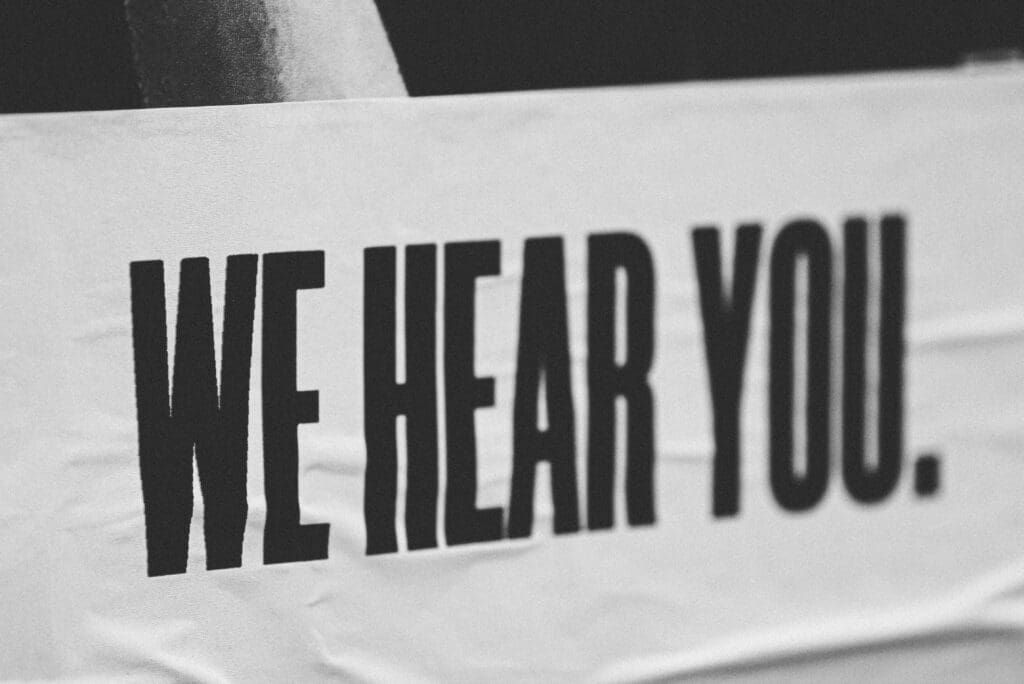Focus on the Climate — Without Greenwashing

Climate change is at the forefront of many people’s minds. While individual consumers can do their part by recycling and trying to commute less, a substantial part of their environmental impact comes from the products they buy. Customers want to buy products that ease their conscience and their burden on the planet, and it’s up to you to give them that option.
Your Customers Want You to Take a Stand
Big brands are taking definitive social and political positions more and more often these days. Nike came down firmly on one side of an extremely polarizing issue when they made Colin Kaepernick their spokesman. Patagonia continued a long history of activism in 2017 when they brought a lawsuit against the President for his decision to reduce the size of the Bears Ears and Grand Staircase-Escalante National Monuments in Utah.
Companies like Nike and Patagonia wouldn’t make public moves like this without considering what their customers (and potential customers) might think, but that’s exactly the point—their customers are on board.
According to the Edelman Earned Brand Report, 64 percent of consumers worldwide are “belief-driven buyers” who choose a brand or even switch from an existing brand based on that company’s stand on social issues.
That goes both ways. On the one hand, companies like Patagonia are actively attracting customers by taking such a prominent position on environmental issues. But inaction doesn’t mean neutrality. If you fail to take any position at all, customers might punish you for what they perceive as apathy.
Is Environmentalism the Cause for You?
There’s a hard truth to be faced here: as big an issue as environmentalism is in the minds of your consumers, it’s simply not a meaningful issue for every company in the world. We’re not saying that it’s not important, but the fact is that for some companies, “going green” is not the horse you should hitch your wagon to. Here are some examples:
You’re a software-as-a-service company with a few dozen employees. You don’t have a physical product, you don’t ship anything from one place to another, and you don’t own a fleet of trucks.
Should you get rid of the Keurig in the breakroom, make an effort to go paperless, and replace your light bulbs with LEDs? Absolutely. But should you brag about doing so on your Facebook page? Probably not. You’re already a very low-impact company, and changing those little things won’t make much of a difference overall. If you call attention to it, it’ll just look like you’re trying to score some cheap points without doing anything.
The same goes for companies with big impacts that make empty gestures. All the LED light bulbs and paperless offices in the world won’t make a difference if you still have a fleet of 100 gas-burning vans on the road, and your customers will notice that hypocrisy.
For an example of what not to do, think back to that infamous Pepsi commercial from a few years ago. The commercial, brilliantly parodied by SNL in the video below, tried to make a statement about unity and togetherness as it related to the Black Lives Matter movement and social inequality in general. The problem? Pepsi has nothing to do with social justice. The commercial came off as insensitive, tone-deaf, and tactless.
If you can’t realistically make a substantial impact on your company’s footprint on the environment, then don’t set yourself up as a champion for environmentalism. Inauthenticity might be worse than inaction in this case. Make the small steps you can, but don’t make a fuss about them.
Greenwashing: What Not to Do
The term “greenwashing” is a play on the word “whitewashing,” which originally was a term for the practice of deliberately concealing unpleasant facts about something—like covering up a ramshackle fence by painting it.
Greenwashing, by extension, is the practice of putting on a facade of environmental consciousness without actually doing anything behind the scenes to improve the ecological footprint of a company.
The problem with greenwashing is twofold. First, it’s misleading and unethical, plain and simple. Secondly, your customers will find out. Today’s customers are more informed than ever — if you don’t back up your talk with action, they will find out and they’ll be even more upset than before. With that in mind, here are a few companies that didn’t get the memo about authenticity.
Volkswagen’s Cheating Diesels
Volkswagen seemed to have invented the perfect diesel—high gas mileage and low emissions—without the annoying noise and handling of most diesels. They spent millions on TV ads bragging about their near-magical diesel engines, and it was looking like they might just convince the notoriously diesel-averse American market to change their minds.
As it turns out, Volkswagen was simply lying about their numbers. They had installed special devices in their cars that could tell when the cars were being tested for emissions; since the tests weren’t carried out on the open road, emissions were only reduced in tests, not in real life.
More than four years and $10 billion in fines later, nearly half a million cars have been taken off the road. Volkswagen might have just ushered in the death of diesel entirely, as lawmakers reacted to the scandal with more stringent laws than ever.
Kauai’s Not-So-Compostable Coffee Pods
The catastrophic environmental impact of single-serve coffee brewing pods has been so well documented that John Sylvan, the inventor of Keurig’s K-Cup system, has expressed regret at ever creating them.
Kauai claimed to have solved that problem with compostable pods, taking the guilt out of the single-cup brewing system and sending their pods “back to the land, not the landfill.” But there was something they weren’t telling people.
Those pods aren’t compostable in the pile in your backyard or the can in your kitchen, the way you might compost a banana peel. They’re only compostable at “industrial facilities,” which require a special trip and aren’t exactly easy to come by — there are only 10 in the entire state of California.
Unfortunately, there are dozens more examples like this—companies lying to or misleading their customers about the environmental impact of their products. Sometimes, companies don’t make claims at all; they simply change their branding to use softer fonts, greens and blues, and pictures of trees to subtly imply that the product is natural or eco-friendly without actually saying it.
How to Do Eco-Friendly Right
Luckily, there are also a lot of positive examples out there for you to draw inspiration from—companies that have made a genuine effort to change their business or manufacturing processes for the better.
Colorado Buffaloes
Right here in our own backyard, the biggest college in the state has gone green. Folsom Field, the 56,000-seat stadium on the campus of the University of Colorado at Boulder, has been making improvements since 2008 to become a zero-waste stadium.
Volunteers sort through trash to find recyclables after games and virtually all of the food containers served at the game are compostable or recyclable. Most recently, the stadium introduced aluminum cups and bottles in partnership with Ball Corporation. The cups are completely recyclable and reusable, and the stadium hopes to become plastic-free by 2020.
IKEA
In 2015, Swedish furniture giant IKEA pledged to dedicate more than $1 billion to sustainability efforts in their business model. In 2018, they upped the ante by pledging to use only renewable and recycled materials by 2030.
IKEA’s flat-pack system already saves on shipping emissions by allowing the company to fit more products in a given truck or container, and 60 percent of the IKEA range is based on renewable materials, but IKEA isn’t stopping there. They’ve also pledged to remove all single-use plastics from their restaurants by 2020 and plan to roll out a line of consumer solar products by 2025.
Panasonic
You probably don’t associate consumer electronics with environmental friendliness, but Panasonic deserves recognition. They moved their American headquarters from Secaucus, New Jersey to downtown Newark, building a brand new LEED-certified tower that reduced the average commute time for their employees and reduced their carbon footprint.
They’ve also set very ambitious energy goals for themselves, including an effort to increase the energy efficiency of air conditioners by 65 percent and washing machines by 45 percent. They’ve also streamlined their manufacturing processes and ramped up recycling rates to more than 90 percent.
Greener Businesses are Better for Everyone
More and more, your customers are passionate about making a positive impact in the world, and they care about whether the products they buy reflect that lifestyle choice. They buy cars with better gas mileage, local produce, and products with recyclable packaging.
Your job is to give them that opportunity. It’s not just good business sense to take a stand on the environmental impact of your business; it’s the right thing to do for all of us.





